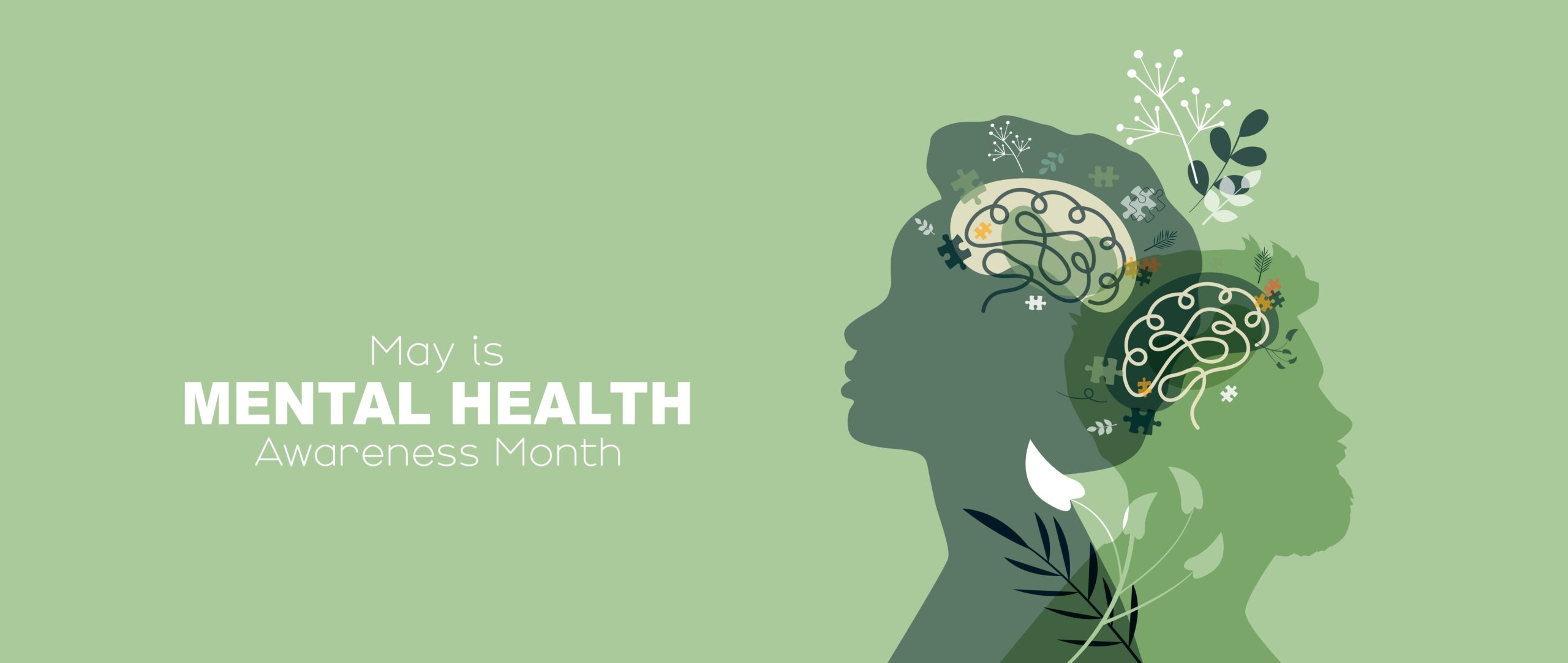Mental health is a crucial part of overall well-being, but too often, it is pushed to the sidelines until serious problems arise. Early mental health treatments can drastically improve outcomes for individuals, reducing long-term complications and helping people live healthier, happier lives. Whether you’re personally experiencing mental health challenges or supporting a loved one who is, early intervention can make all the difference.
We will explore the importance of early mental health treatment, the benefits it offers, common barriers, and practical steps you can take to ensure timely care. Let’s dive into why addressing mental health issues early is essential for better outcomes.
What Is Early Mental Health Treatment?
Early mental health treatment refers to the process of identifying and addressing mental health issues at the first signs of a problem. This type of intervention occurs before symptoms escalate into more serious conditions or crises.
Some key elements of early mental treatment include:
- Recognizing early warning signs of mental health conditions
- Seeking professional support before issues worsen
- Utilizing preventive approaches like therapy, medication, and lifestyle changes
Early mental health intervention is not about waiting for a crisis to occur. Instead, it’s about taking proactive steps to manage mental health at the earliest stage possible, leading to better long-term results.
The Benefits of Early Mental Health Intervention
Seeking early mental health treatment can result in a range of benefits, both for individuals facing mental health challenges and their families. Here are the most important advantages:
1. Improved Prognosis
When mental health issues are identified and treated early, individuals are more likely to recover faster and avoid severe, long-lasting symptoms. Early intervention helps in:
- Reducing the intensity of symptoms
- Preventing the progression of mental health disorders
- Minimizing the risk of relapses in conditions like depression and anxiety
2. Prevention of Severe Mental Health Episodes
Ignoring early signs of mental health problems can lead to more severe conditions that are harder to treat. For example, mild anxiety can progress into panic disorders or social phobias if left unaddressed. Early intervention prevents the escalation of symptoms, ensuring that minor concerns don’t become major disorders.
3. Better Quality of Life
Individuals who receive early mental health treatment often experience:
- Better relationships with friends, family, and coworkers
- Improved performance at work or school
- Increased sense of well-being and self-confidence
4. Reduced Risk of Hospitalization
Severe mental health episodes often result in hospitalization, which can be a traumatic experience for the individual and their family. By addressing issues early, the likelihood of requiring hospitalization is significantly reduced.
5. Cost-Efficiency
Untreated mental health issues can lead to costly long-term care, including therapy, medications, and hospital stays. Early intervention helps keep these costs manageable by reducing the need for intensive treatments down the road.

Common Barriers to Seeking Early Mental Health Treatment
Despite the numerous benefits, many individuals delay seeking early mental health treatment. Understanding these barriers is the first step in overcoming them.
1. Stigma
Mental health stigma is one of the biggest barriers to seeking early intervention. Society often views mental health issues as a weakness, which discourages people from seeking help. This stigma can be particularly strong in certain cultural or familial environments.
2. Lack of Awareness
Many people are unaware of the early signs of mental health problems or may not recognize their symptoms as something that requires professional help. Education is key to changing this and ensuring that more people understand when to seek treatment.
3. Access to Care
For some, access to mental health care is limited by location, availability of providers, or financial constraints. Even when people are aware that they need help, they may struggle to find appropriate treatment due to:
- Insurance issues: Not all insurance plans cover mental health care, or they may only cover limited services.
- Provider availability: Mental health professionals may have long wait times or be fully booked, especially in rural or underserved areas.
4. Fear of Treatment
Many individuals fear the potential treatments for mental health issues, such as the side effects of medication or the discomfort of therapy. This fear can delay the decision to seek help, worsening the situation.
Early Signs and Symptoms That Indicate Mental Illness
Recognizing the early warning signs of mental illness conditions can ensure timely intervention. Here are some common signs to watch out for:
- Persistent sadness or irritability: Ongoing low mood, feelings of hopelessness, or unexplainable anger.
- Withdrawal from social activities: Avoiding friends, family, or activities that once brought joy.
- Changes in sleep patterns: Sleeping too much or too little can be a sign of depression, anxiety, or other mental health disorders.
- Unexplained physical symptoms: Headaches, stomach issues, or muscle pain can sometimes have a psychological origin.
- Difficulty concentrating or making decisions: Mental health problems often lead to cognitive challenges like brain fog or indecision.
- Substance use: Increased reliance on alcohol, drugs, or other substances can signal underlying mental health issues.
- Frequent mood swings: Sudden, dramatic shifts in mood that are difficult to control.
If you or a loved one experiences any of these symptoms for an extended period, early mental health treatment is crucial.
How Early Treatment Leads to Better Long-Term Outcomes
The advantages of early intervention extend far beyond immediate relief. Addressing mental health problems at an early stage contributes to better long-term outcomes, including:
1. Reducing Risk of Future Relapses
Early treatment significantly reduces the chances of relapse, especially for conditions like depression, anxiety, and bipolar disorder. Timely therapy and medication management can stabilize mood and prevent future mental health episodes.
2. Development of Healthy Coping Mechanisms
Intervention at an early stage helps individuals build the skills necessary to cope with stress, manage emotions, and maintain mental wellness. Some of the coping strategies developed through early intervention include:
- Mindfulness practices
- Healthy communication skills
- Problem-solving techniques
- Emotion regulation
3. Positive Impact on Personal and Social Life
Mental health conditions can strain relationships and create challenges in daily functioning. When treated early, individuals experience:
- Stronger relationships with family and friends
- Improved work performance and attendance
- Better academic outcomes for students
- Greater involvement in social and community activities
Types of Early Mental Health Treatment Available
When seeking early mental health treatment, individuals have access to a variety of options. These early mental health treatments are tailored to the needs of the individual and can include:
1. Psychotherapy
One of the most effective forms of early intervention is therapy. Cognitive Behavioral Therapy (CBT) is widely used to address mental health problems, teaching individuals how to change unhelpful thought patterns and behaviors. Other therapy types include:
- Dialectical Behavioral Therapy (DBT)
- Interpersonal Therapy (IPT)
- Family Therapy
2. Medication
In some cases, medication may be necessary as part of early mental health treatment. Antidepressants, anti-anxiety medications, or mood stabilizers can help alleviate symptoms while individuals engage in therapy.
3. Support Systems
In addition to professional treatment, having a strong support network is crucial. This can include:
- Peer support groups: Connecting with others who face similar mental health challenges.
- Family support: A loving, understanding family can provide emotional backing and encouragement.
- Online resources: Many individuals find helpful resources, such as mental health apps or educational websites, that can offer guidance and support.
How Family and Friends Can Help Encourage Early Treatment
The role of family and friends in encouraging early mental health treatment cannot be understated. Here’s how you can help someone you care about seek the help they need:
1. Support Without Judgment
Creating a safe and non-judgmental space is the foundation for encouraging someone to seek treatment. Let your loved one know that:
- You care about their well-being
- It’s okay to ask for help
- You’ll be there to support them through the process
2. Encourage Professional Help
It’s important to gently encourage your loved one to seek professional treatment, whether through therapy, a doctor’s visit, or speaking to a mental health professional. A few tips for encouraging this include:
- Offer to accompany them to their first appointment.
- Discuss the benefits of seeking help early, emphasizing that it’s a sign of strength, not weakness.
- Help with research: Assist them in finding a therapist or mental health service provider.
3. Educate Yourself
Learning more about mental health issues can help you better support your loved one. Understand the symptoms they may be experiencing, the types of treatments available, and the ways you can help.
Conclusion
Early mental health treatment is a powerful tool for preventing more serious issues down the line and improving overall well-being. Whether you’re dealing with mild symptoms or more severe concerns, seeking help as soon as possible can make a world of difference. Remember, mental health should never be ignored—timely intervention can lead to better long-term outcomes for you or your loved ones.
If you or someone you know is struggling with mental health issues, don’t wait. Contact Aspire Frisco today to get the support and treatment you need. Early action can lead to a healthier, happier future.
Frequently Asked Questions
What are the first signs of mental health issues?
Common signs include persistent sadness, irritability, changes in sleep patterns, and withdrawal from social activities. These early indicators can point to underlying mental health conditions that may worsen if left untreated.
What should I do if I think I need mental health treatment?
If you believe you need mental health treatment, the best step is to consult a healthcare professional. They can evaluate your symptoms and recommend appropriate therapies, medications, or other treatments to address your needs.
What are some common early treatment options for mental health?
Early treatment options often include therapy, such as Cognitive Behavioral Therapy (CBT), medication when necessary, support groups, and lifestyle changes like mindfulness practices and regular exercise.
Can early treatment prevent a mental health crisis?
Yes, early intervention can stop symptoms from worsening and prevent mental health crises, which might require more intensive care if untreated. Acting early can provide long-term stability.
How long does early mental health treatment take?
The length of treatment varies based on the individual’s needs and the severity of the symptoms, but starting early and sticking to a treatment plan often leads to the best results over time.
For those seeking mental health support, don’t hesitate. Contact us at 469-249-9363 or email info@aspirefrisco.com today for personalized treatment options.




















